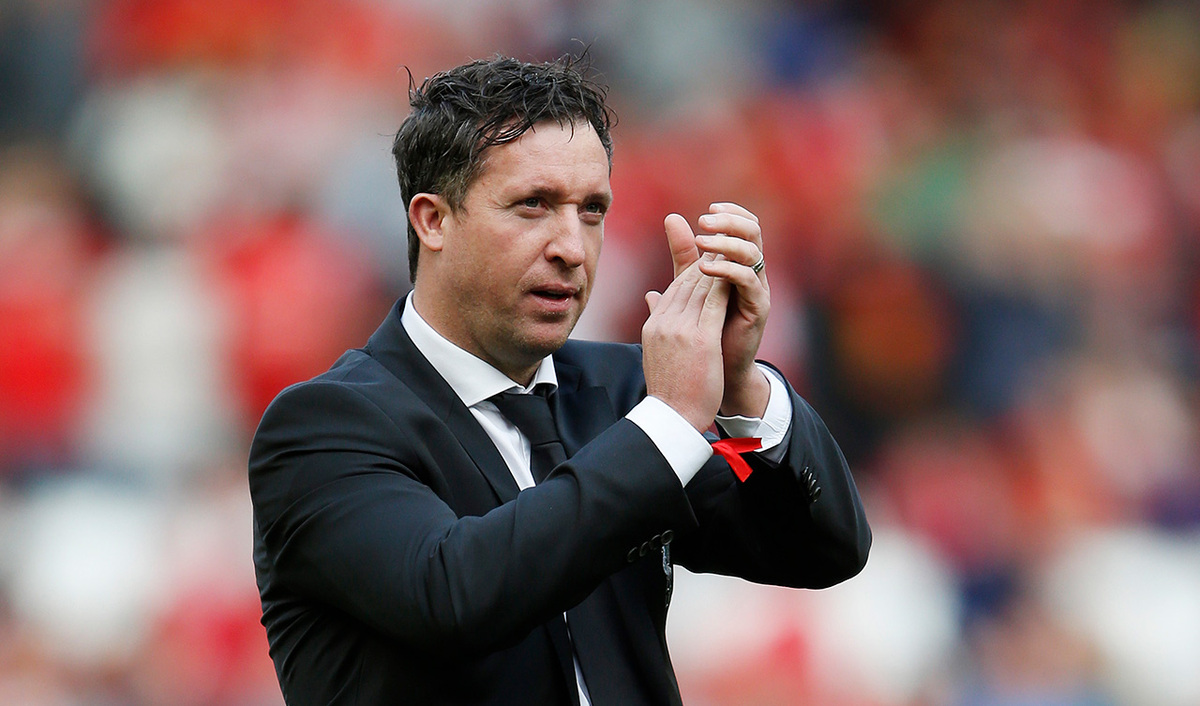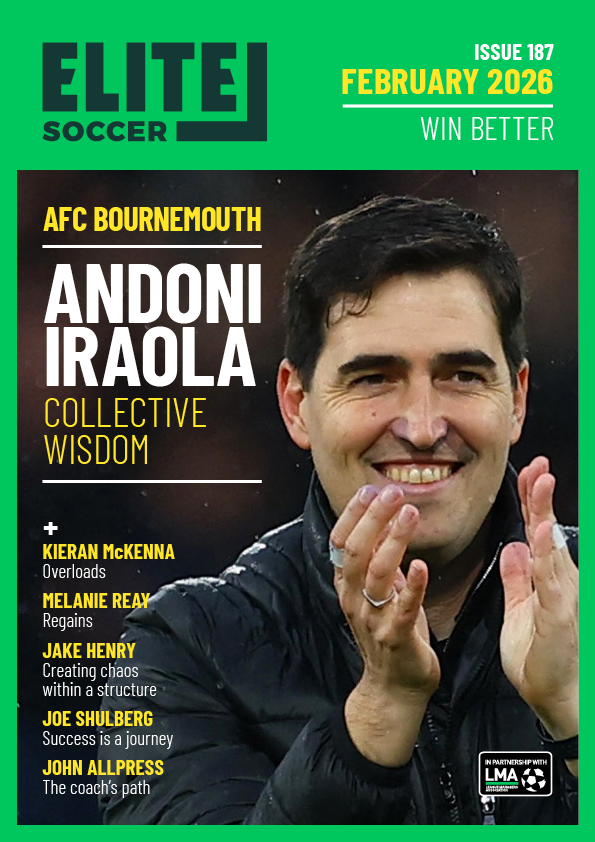NEXT ELITE SOCCER COACHING AWARD COHORT STARTS FEBRUARY 16 - ENROL NOW
Coaching abroad

New to Elite Soccer?
1. Watch our free webinar with Slaven Bilic
2. Read Elite Player & Coach Development
3. Download a free issue
Editor's Picks
Attacking transitions
Jesse Marsch
Deep runs in the final third
Fabian Hürzeler
Using the goalkeeper in build-up play
Ralph Hasenhüttl
Intensive boxes drill with goals
Andoni Iraola
Penetrating the final third
Ange Postecoglou
Creating and finishing
Pep Guardiola
My philosophy
Sir Alex Ferguson
Pressing initiation
Mauricio Pochettino
Compact team movement
Roberto Martinez
Coaches' Testimonials

Alan Pardew

Arsène Wenger

Brendan Rodgers

Carlos Carvalhal

José Mourinho

Jürgen Klopp

Pep Guardiola

Roy Hodgson

Sir Alex Ferguson

Steven Gerrard
Coaches' Testimonials

Gerald Kearney, Downtown Las Vegas Soccer Club

Paul Butler, Florida, USA

Rick Shields, Springboro, USA

Tony Green, Pierrefonds Titans, Quebec, Canada
Join the world's leading coaches and managers and discover for yourself one of the best kept secrets in coaching. No other training tool on the planet is written or read by the calibre of names you’ll find in Elite Soccer.
In a recent survey 92% of subscribers said Elite Soccer makes them more confident, 89% said it makes them a more effective coach and 91% said it makes them more inspired.
Get Monthly Inspiration
All the latest techniques and approaches
Since 2010 Elite Soccer has given subscribers exclusive insight into the training ground practices of the world’s best coaches. Published in partnership with the League Managers Association we have unparalleled access to the leading lights in the English leagues, as well as a host of international managers.
Elite Soccer exclusively features sessions written by the coaches themselves. There are no observed sessions and no sessions “in the style of”, just first-hand advice delivered direct to you from the coach.


